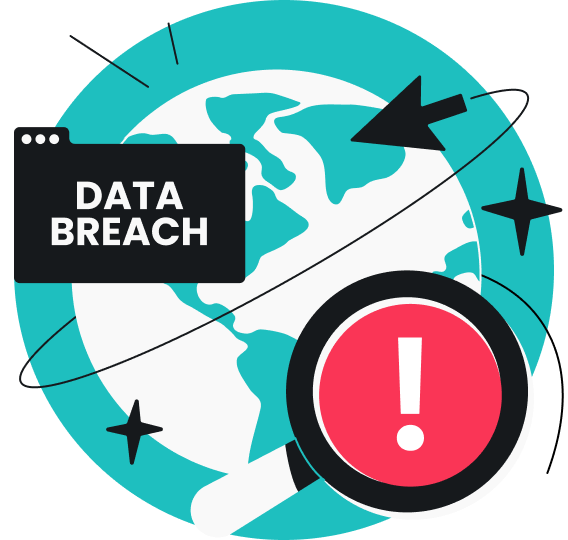
The internet is as vast as the ocean. And although we surf both as temporary guests, the ocean is the only home to a wide variety of sea life — including sharks. Sharks, whose name Surfshark incorporated into its brand name and proudly carries today.
As “sharks” of the internet, we want to do our part for the sharks of the ocean. That is why Surfshark is celebrating Shark Awareness Day this year by joining the Big Shark Pledge — an initiative run by a shark conservation NGO, Shark Trust. Want to learn more and maybe even join in helping all the Mr. and Mrs. Jawsomes of the ocean? Then keep on reading!
Shark Awareness Day
Shark Awareness Day is marked yearly on July 14 to raise awareness about shark conservation and promote understanding of these magnificent sea animals. It is also dedicated to dispelling misconceptions and stereotypes about sharks and highlighting their essential role in the ecosystem. This day serves as a reminder to educate yourself and others about the threats sharks face and the importance of responsible and sustainable fishing practices. It also encourages people to donate to shark conservation efforts.
Partnering with Shark Trust on the Big Shark Pledge
For this year’s Shark Awareness Day, we partnered with Shark Trust.
Shark Trust is a non-governmental organization from Plymouth, UK, dedicated to safeguarding the future of sharks through positive change.
This year, we have signed their Big Shark Pledge — a public-facing campaign aiming to protect oceanic sharks and rays that face a heightened risk due to a lack of agreed management and poor enforcement of regulations. Populations are estimated to have declined by 71% in only 50 years, and a staggering three-fourths of these sharks and rays are under the threat of extinction. According to Paul Cox, Shark Trust’s CEO, 100 million sharks are killed in fisheries in a single year. While the exact number is uncertain, it is unsustainable, making this Pledge even more vital today.
The Pledge advocates for:
- Science-based catch limits — regulating which species and what amounts should be caught;
- Conservation management plans — identifying the threat-facing species and proposing collaborative actions to rebuild populations, tighten regulations and improve research;
- Policy change — influencing rules which inform how fisheries should operate and encouraging sustainable fishing practices informed by the latest scientific advice.
Paul Cox, CEO of Shark Trust:
“Surfshark shows its commitment to shark conservation by partnering with us at Shark Trust. We strongly support Surfshark’s efforts to help us end the overfishing of sharks in international waters through the promotion of the Big Shark Pledge, and we’re very grateful for their donation, which will help this cause.”
Why are sharks important?
Sharks are great, even if they seem a little scary-looking. Whatever you feel about sharks, they are magnificent ocean creatures that play vital roles in the ocean ecosystem. Here’s why they’re so important:
- Larger sharks, like the great white and tiger sharks, are the “apex” predators. Such predators play important roles in complex natural systems, shaping the roles of prey species and the wider ecosystem;
- Smaller sharks also are vital to keeping the delicate balance of ocean life. As predators, they keep fish, squid, crabs, and other marine animal populations in control. Thanks to them, no one group can grow too abundant;
- Sharks help the ocean’s biodiversity. The higher the biodiversity of an ecosystem, the more resilient the ecosystem becomes to change. Sharks keep the food webs balanced and feed on the most numerous species, helping the smaller species grow in number.
What problems do sharks face?
We established sharks are important. But why are they in danger if they are the top dog predators in the ocean? Well, there are a few reasons. One-third of shark species are considered “threatened,” which means they are on the IUCN (International Union for Conservation of Nature) Red List as “Vulnerable,” “Endangered,” or “Critically Endangered.” That makes them the second most threatened group after amphibians.
Here are the biggest threats facing sharks and the reasons why their numbers are so rapidly declining:
- Excessive and poorly managed commercial fishing is the biggest one. Sharks are caught for their meat, the shark-fin trade, and their flesh or oil-rich livers. There is also the bycatch — fishing boats catching sharks accidentally, often injuring or killing them;
- Climate change and habitat loss. Rising ocean temperatures, destruction of coral reefs, pollution — all of these disrupt sharks’ life cycles and prey availability;
- Negative image. The media perpetuates negative stereotypes about sharks. Think of movies like Jaws, Deep Blue Sea, and The Reef. Such media behavior can result in growing fear and lessened public support for shark conservation efforts.
How can you support the Big Shark Pledge and help sharks?
You can sign the Pledge. The team of Shark Trust will then communicate with you at critical points in the advocacy process and provide you with tools to make your voice heard by policymakers.
The Shark Trust website is also full of other ways that you can get involved. From donating or becoming a Shark Trust member to becoming a citizen scientist in one of their projects. Or even taking on a marathon in aid of sharks!
Let Shark Awareness Day 2023 be the beginning of your journey protecting sharks. Visit the Shark Trust page, subscribe to their newsletter, learn more, and become one of the voices for these majestic yet vulnerable creatures!
